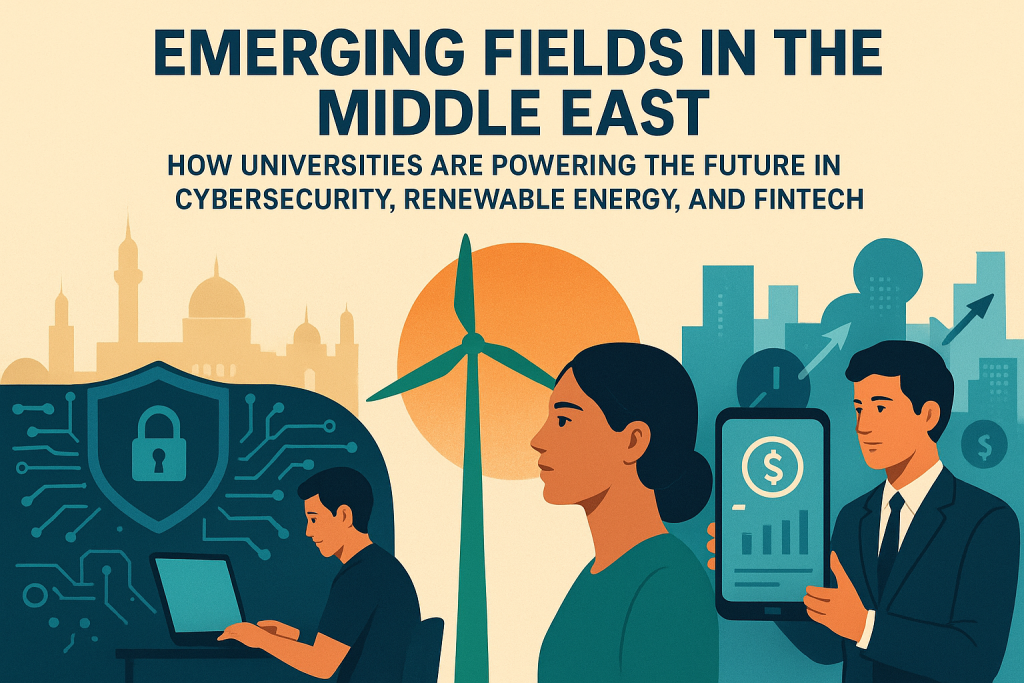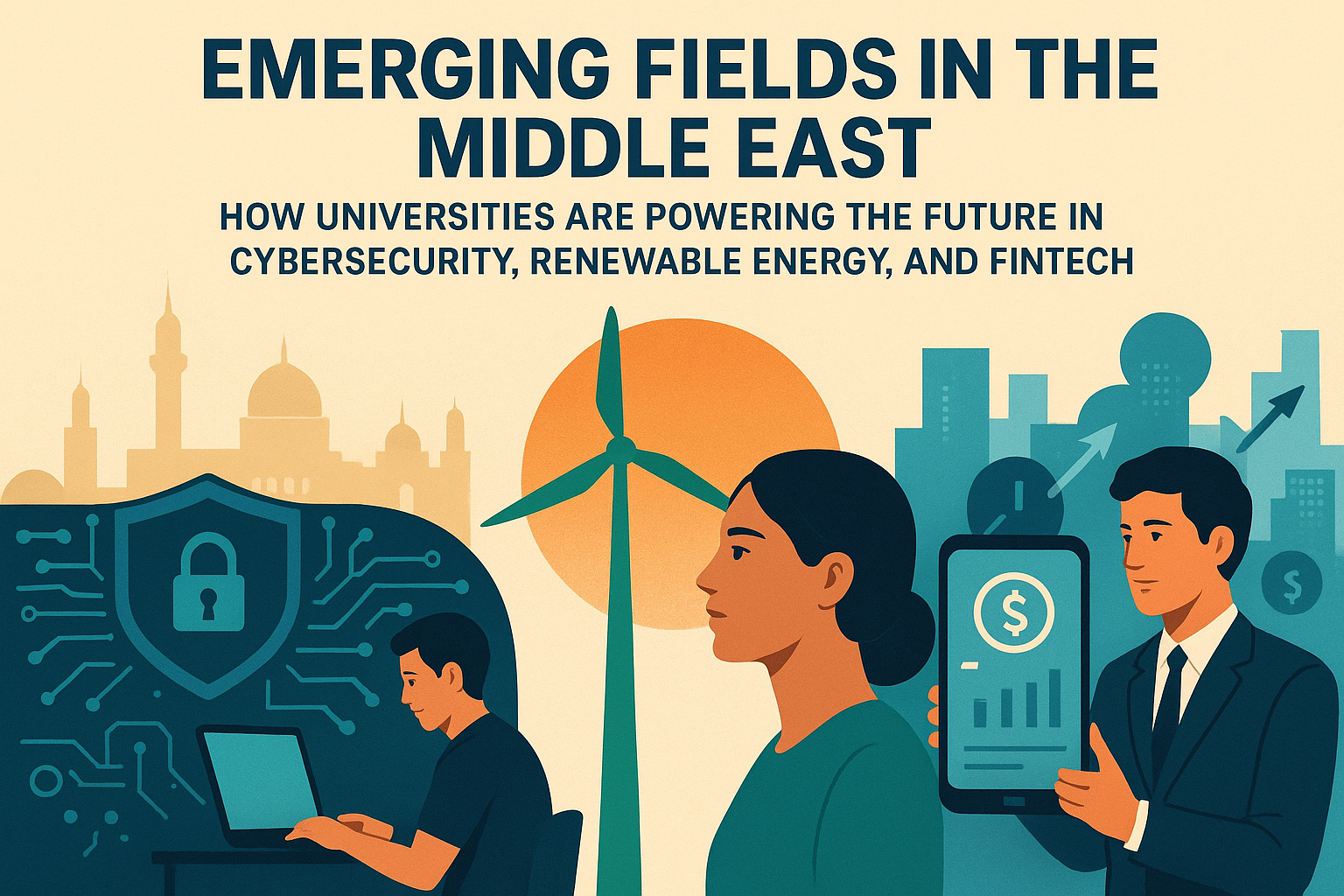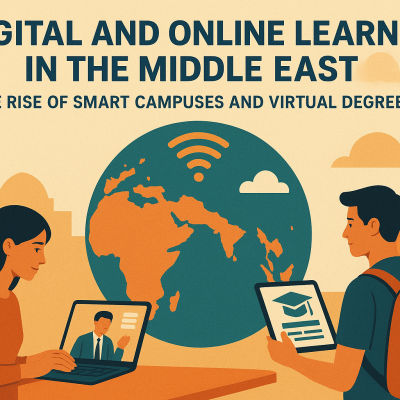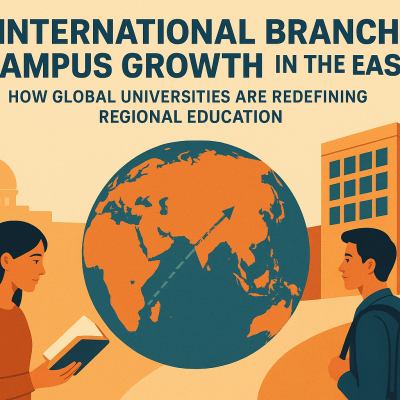
As the global economy moves toward digitalization and sustainability, the Middle East is no longer a passive observer — it’s an active innovator. Over the past decade, universities across the region have been reimagining higher education by introducing programs that align with the industries defining tomorrow: cybersecurity, renewable energy, artificial intelligence, and fintech.What makes this transformation unique is not only the introduction of new academic majors but also how these programs are embedded within the region’s economic visions — such as Saudi Vision 2030, UAE Centennial 2071, and Egypt Vision 2030. The result is a generation of universities producing graduates ready to lead the Fourth Industrial Revolution, right from the Middle East.





